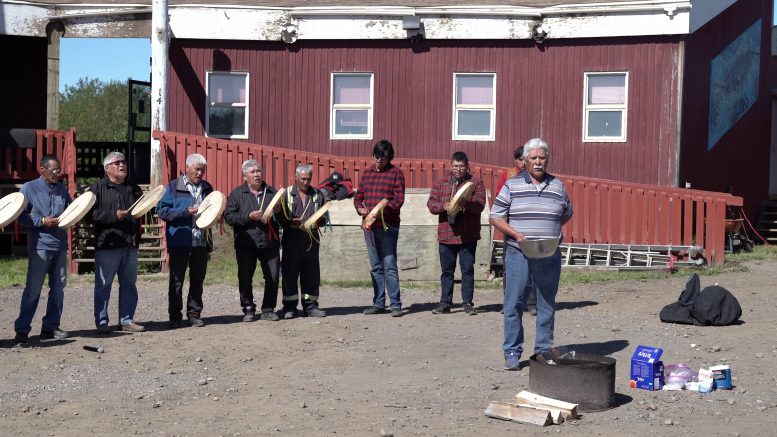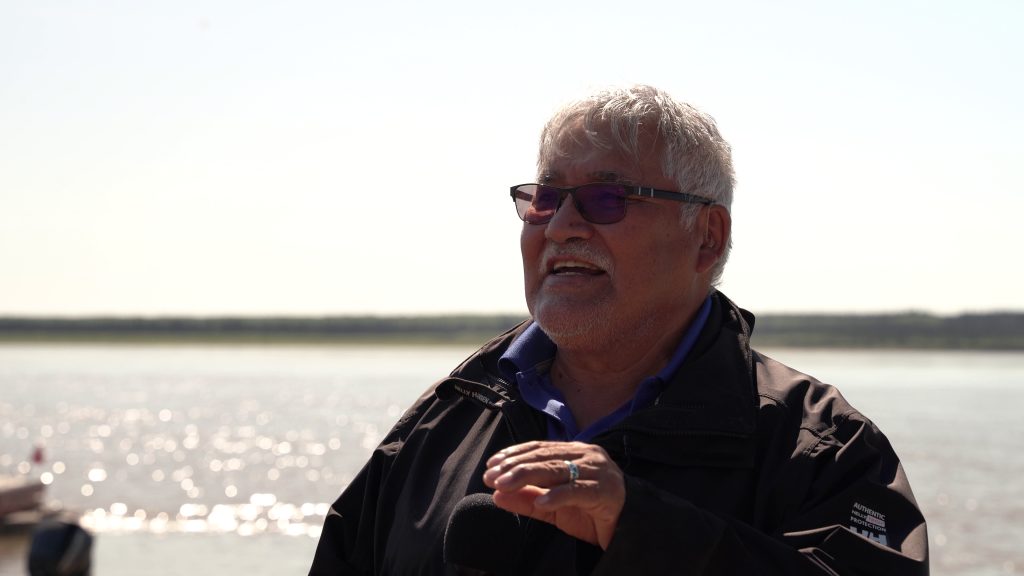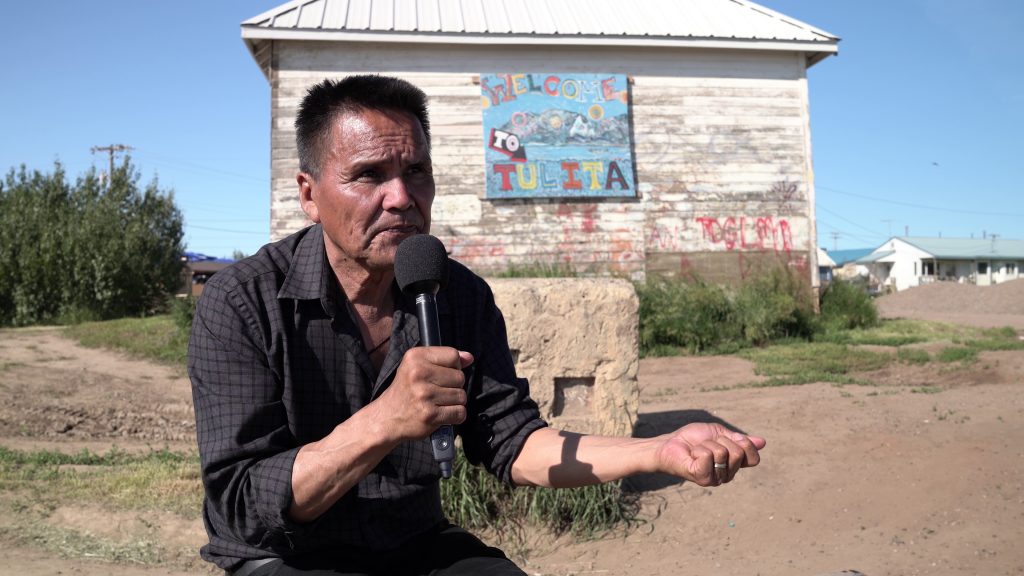“One of the things that you have to remember in those days, you can’t lie. It’s a matter of life and death out in the bush.”
In 1921, says Paul Andrew, this is what Elders had in mind when they gave their word to honour the treaty between their people and the Crown. They also assumed the colonial government would be telling the truth around the agreement.
Andrew’s home community of Tulít’a held its Treaty 11 commemoration from July 15 to 18; he was one of many Shuta Got’ine to reflect on the 100th anniversary of the signing. Communities across Denendeh have wavered on whether the anniversary is cause for celebration.
“What I celebrate more than anything else is our version,” says Andrew. “I’m celebrating Dene resilience, Dene brilliance, the amazing people… They were thinking about us 100 years later, when they came up with the deal.”
In keeping with Tulít’a’s history, people came in from across the Sahtú for the event.
“Music, laughter, language, stories, you name it, everything that makes you Dene happens here,” says Andrew. That includes a deep relationship to the land.
‘Sacred document’
The gathering was an opportunity for Dene National Chief Norman Yakeleya to return to his home region.
Yakeleya has called the treaty a “sacred document.”
“We made that treaty based on sacred legends on our land, right down the valley all the way to the Arctic Ocean,” says Yakeleya. “Our land is our witness… our land is sacred.”
Treaty 11 is said to be about peace and friendship; it was supposed to be a protection of the Dene way of life. In reality, community members were displaced when oil was found, restrictions were imposed on traditional harvesting, large-scale projects came in with little benefit to communities — all changing the land and lifestyle of those that signed on to the treaty, and generations after them.
“I see the 100 years to celebrate past leaders, not really how government treated us,” says Sahtú Grand Chief Wilbert Kochon. “They never sold the land.”
Next 100
Kochon says the next 100 years will be a time of people “taking back what theirs already, that belongs to them.” He adds self-government will be a large part of that process.
“Elders always say you have to have a vision,” he says.
For Yakeleya, that vision includes strong upcoming leaders in today’s youth and shedding preconceptions of Indigenous people that have been perpetrated throughout Canada’s history.
Tulít’a’s treaty activities kicked off after a group of 44 paddlers, mostly youth, arrived by canoe from Délı̨nę.
Danielle Takazo, 24, was one of those paddlers.

Danielle Takazo was one of paddlers that canoed along the Great Bear River to Tulít’a from Délı̨nę. (Francis Tessier-Burns/CKLB)
Takazo admits she doesn’t know the history of the treaty as well as she’d like. Something other youth have told CKLB as well. But looking ahead, Takazo echoes the message of the need for greater self-determination and “awareness” about communities like hers.
“Awareness in a lot of places like mental health, and history, and being out on the land,” she said.
She adds that she’d like to see people once again live all around Great Bear Lake.
“I want it to be strong,” she says. “This is a process, it’s not going to happen right away. But I think with awareness it would be a good start towards the future.”
Andrew, Yakeleya, Kochon and Takazo all said that it begins by being out on the land — as long as the sun rises, the river flows and the grass grows.







